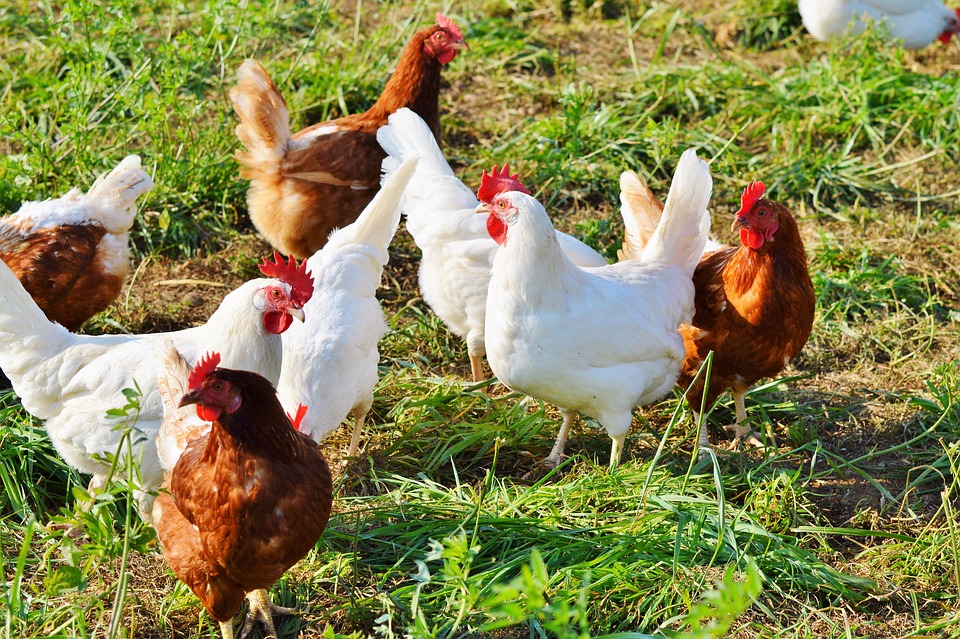Business
Astral CEO Warns US Trade Tensions Could Undercut South Africa’s Poultry Industry

Astral Foods CEO Gary Arnold has voiced growing concern over the potential fallout of escalating US-South Africa trade tensions on the country’s poultry industry. While the sector remains mostly insulated for now, Arnold warns that changes to import duties or a breakdown of the African Growth and Opportunity Act (Agoa) could have far-reaching effects on both poultry producers and the broader economy.
Speaking during an online briefing for Astral’s interim results, Arnold said that although the US currently holds a 70,000-ton duty-free chicken import quota into South Africa, the impact has been minimal — partly because the quota went largely unfilled in 2023, and there have been no imports at all this year due to bird flu outbreaks in the US.
Yet, behind the scenes, trade uncertainty is brewing. South Africa recently introduced a 10% import duty, casting doubt over the duty-free status of the US quota. “Technically, the quota falls away under the new duty, but nothing is confirmed yet,” Arnold said, adding that much depends on upcoming bilateral discussions.
President Cyril Ramaphosa is currently leading a high-level ministerial delegation to Washington to meet with US President Donald Trump. The talks aim to reset relations and negotiate the terms of Agoa, which provides duty-free access for many South African exports — including poultry, vehicles, and agricultural goods — to the United States.
Local Industry Holding the Line
Arnold emphasized that imported poultry only accounts for 21% to 22% of South Africa’s local consumption, down from more than 30% in 2019 when anti-dumping duties and the Poultry Sector Master Plan were introduced.
“Since then, we’ve ramped up local production and created jobs,” Arnold said. However, he stressed that the industry must be included in any future decisions involving trade policies, tariffs, or import quotas.
On the topic of fellow poultry producer Daybreak Foods’ financial troubles, Arnold acknowledged that the distress may cause some supply constraints in the retail market. However, Astral itself had already boosted production this year in anticipation of growing demand.
Pressure from All Sides
Astral’s latest financials tell a story of margin pressure and input cost inflation. The company’s poultry division saw operating profit plummet by 50.7% to R271 million for the six months ending March 31. Overall earnings fell as Astral was forced to absorb higher costs for feed and operations, unable to pass them on due to a highly competitive pricing environment.
“We experienced significant poultry selling price deflation,” said Arnold. “We had to subsidize production costs, which is not sustainable.”
Despite the headwinds, Astral declared a R2.20 interim dividend, citing a strong balance sheet and solid cash flow.
The feed division provided a silver lining, with revenue rising 9.4% to R5.3 billion thanks to improved sales volumes and higher prices. This included a 5.9% increase in feed sales, partially driven by a recovery in the commercial layer sector after the 2023 bird flu outbreak.
Meanwhile, poultry division revenue increased modestly by 1.5% to R8.8 billion, but lower selling prices and higher input costs — notably a 28% surge in yellow maize prices — led to a R26 million loss, compared to a R284 million profit the previous year.
Arnold sees some relief on the horizon. Maize prices, which had spiked to R5,700 per ton earlier this year, have since dropped to around R4,000, with expectations of a strong local harvest that could bring further relief.
“A drop in inventory levels and higher broiler placements should support price recovery in the coming months,” Arnold said.
Still, with the fate of Agoa hanging in the balance and growing trade tension with the US, the poultry industry is calling for a seat at the negotiating table before any decisions reshape its future.
{Source: IOL}
Follow Joburg ETC on Facebook, Twitter , TikTok and Instagram
For more News in Johannesburg, visit joburgetc.com



























